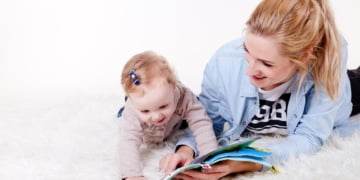Baby shampoo plays a crucial role in toddler care, by offering gentle way to clean a baby’s sensitive scalp and hair without causing dryness and irritation.
As the babies have thinner, more sensitive skin and scalps, thus, baby shampoo is specially formulated to protect the delicate skin barrier and reduce the risk of allergic reaction during and after bath.
As increasing awareness of ingredient safety, modern parents are shifting towards label claims, such as “paraben-free,” “sulfate-free,” and “tear-free”, and these claims represent significant shift in the baby shampoo market.
According to Pristine Market Insights, the global baby shampoo market is witnessing continuous growth, characterized by rising parental awareness, preference for natural ingredients, concerns over potential allergens and aggravations in traditional formulations.
Key Reasons Why Baby Shampoo is Important:
- Gentle Cleansing: Baby shampoo aim to remove dirt, sweat, and cradle cap without shedding natural oils. Gentle cleansing help to maintain the natural protective oils on baby’s scalp, and main skin’s microbiome or pH balance by using natural products.
- Skin & Scalp Safety: Traditional shampoo have risk associated with skin issues like eczema or rashes, which significantly reduce by baby shampoo and create a healthy scalp foundation of future hair growth.
- Non-irritating: As baby shampoos are specially designed to minimize irritation to eyes, skin, and hair follicles. Though, improper or harsh shampoo may trigger common baby skin condition, which is majorly caused by synthetic dyes or strong preservative like Contact Dermatitis. Moreover, repeated irritation can lead to dislike to bath time or long-term sensitivities.
- Daily Use: Unlike many adult shampoos, baby shampoo is safe enough for regular use, which anticipated to drive baby shampoo market. The uniformity of safe daily use strengthens brand loyalty and enhances a product’s perceived value among the parents.
- Bonding Time: A mild, pleasant-smelling shampoo boosts this involvement between mother and baby during bath time. Many brands are modifying natural scents, such as lavender, calendula, and chamomile, are known for their aromatherapeutic and calming effects, can aim to improve relaxation and attachment between infant and toddler.
Understanding the Claims:
- Paraben-Free:
Parabens have key role to prevent growth of mold, yeast, and bacteria, thus it usually used in cosmetics and personal care products.
Certain parabens such as methylparaben and propylparaben could mimic estrogen and potentially interfere with the endocrine system, this can create global consumer concern, especially among the parents for choosing products for their infants, this can restrict baby shampoo market growth.
However, many brands choosing paraben-free alternatives, especially for baby-care products to reduce perceived risks and meet rising consumer expectation of clean-labels.
Potassium sorbate sodium benzoate, and phenoxyethanol used as parabens alternative to minimize these hormonal imbalance and irritation to sensitive skin.
- Sulfate-Free:
Sulfate are commonly found in many shampoos, and can be harsh to toddler’s skin and eyes, which can cause irritation, dryness, and several allergic reactions.
However, naturally derived alternatives like coco-glucoside or decyl glucoside, which used as alternative to sulfates, as they can cleanse effectively without drying effects.
As babies have sensitive skin, even mild irritation is undesirable, thus many parents shift towards sulfate-free baby care products.
To illustrate, in January 2024 the Hydrating Baby Shampoo, the Hydrating Conditioner, and Hydrating Baby Bundle was launched by Ooume, a leading baby care company.
These products were aimed to provide gentle, effective, and natural hair care products, moreover this are free from harsh chemicals, sulfates, and artificial fragrances, which more delicate to baby hair.
- Tear-Free:
The tear-free claim is most comforting to parents, as it refers to formulations designed to not cause stinging, burning or redness it accidently enters a baby’s eyes.
This can achieve by adjusting shampoo pH that closely match to natural tears and use ultra-mild surfactants that reduce eye irritation.
Tear-free formulations made with synthetic or naturally derived ingredients, that specially designed to avoid eye irrigation in baby.
Thus, the demand for parent-informed and bay-safe solutions is rises, the baby shampoo market is anticipated to drive.
Key Factors Influencing Baby Shampoo Market:
Manufactures are continuously formulating new formulations, packaging and messaging to meet evolving consumer demand towards baby care products.
- Parenteral Awareness and Ingredient Examination:
Parents are more educated about cosmetic ingredients, they study product labels, consult online reviews, and survey pediatric dermatology advice, which represent significant drive for baby shampoo market.
By being aware of specific allergen, parents can make informed decision to protect their infant skin and overall health, which reduces the risk of reactions and ensures safety of products.
Additionally, parental blogs, and product videos can provide which things should avoid or consider during baby care product purchasing.
- Growing Demand for Natural, Organic, and Vegan Products:
Today’s parents are more health-conscious than before and this can significantly affect their purchasing decisions for baby care products.
Current consumers are increasingly shifting towards ingredient labels, avoids synthetic labels, and seeking products labelled as natural, organic, or vegan.
The growing emphasis on plant-based ingredients, such as aloe vera, calendula, chamomile, coconut oil, and natural ingredients, to offer gentleness, safety, and better compatibility with sensitive baby skin.
However, increasing trend of vegan products, particularly among environmental and ethical conscious customers, raises the demand for no animal-derived ingredients in baby care products is anticipated to drive baby shampoo market.
- Impact of E-commerce and Social Media:
Online platforms target specific demographic audience and enables wider production selection at any time anywhere.
Particularly in rural areas, e-commerce platforms made baby shampoo products more accessible to consumers. Many e-commerce brands providing personalized product recommendations, by enhancing shopping experience and sales.
Social media’s parenting trends influencing product recommendations can rises the demand for specific types of baby shampoo like natural or organic options in baby shampoo products.
- Eco-friendly Packaging and Sustainability Concerns:
The consumer shift towards eco-friendly packaging and sustainable practice boosts the product innovation in baby shampoo market.
Modern consumer become more environmental conscious, as they consider entire lifecycle of the product, including packaging during purchasing of baby care products.
Manufacturer are adopting low-waste or zero-waste packaging solutions, while some brands also use plant-based plastics, which are renewable during manufacturing.
Eco-friendly packaging focus to reduce waste, and provide baby shampoo bottles with labels like plastic-free, compostable, or made with recycled materials.
- Upsurge of Premium and Niche Brands:
There are many traditionally dominated by market player are present in the baby shampoo market, but in recent surge in premium and niche players that provide specific consumer needs and values.
These brands categorized themselves by offering wide range of product, such as high-performance, dermatologist-tested formulation, transparent ingredient list, tailored products for specific skin conditions, e.g., eczema, cradle cap, extremely sensitive skin, and personalized products like build-your-own formulas.
Additionally, niche brands often introducing concepts like AI-based skin diagnosis, subscription models, and virtual consultations for baby skincare routines.
How Parents Can Decode Baby Shampoo Labels Themselves?
Companies often use scientific names, green marketing language, or vague claims, thus reading baby shampoo labels can be confusing, even for well-informed parents.
This guide breaks into three areas to help parents when selecting baby shampoos. The first step is to understand which ingredients avoid during purchasing product.
Parabens contain formaldehyde-releasing preservatives, such as DMDM hydantoin and quaternium-15, act as hidden toxins, and synthetic dyes that assist no functional purpose in cleansing, which only irritate sensitive skin.
In addition, it is equally important to spot greenwashing tactics, where brands make a product seem safer and more natural.
A common example like chemical-free or toxin-free; these terms are scientifically meaningless, as all substances are technically chemicals, thus look for toxin-free products, such as paraben-free, sulfate-free.
Another misleading term is natural or organic without any official certification. Such claims are unregulated and may apply even if one or two ingredients are natural in products.
Additionally, a tear-free label can be misleading unless they have not proper explanation of pH balance or ophthalmologist testing.
Moreover, eco-friendly packaging claims should be supported by recyclable materials or refillable system evidence, not just with green-colored or buzzwords on shampoo bottles.
Regulatory and Safety Standards in Baby Shampoo:
Regulatory and safety standards are important for baby shampoo to protect babies from harmful ingredient and ensure product must follow standard guideline to meet gentle and safe for babies’ delicate skin.
Safety standards, like India’s BIS, the United States FDA, and European EU cosmetics Regulation impose strict guidelines that ban, restrict, or control the use of harmful ingredients.
These guidelines certify only non-toxic, non-allergic, and dermatologically safe ingredients are included in baby shampoo to meet safety standards.
Conclusion:
Changing consumer standards, growing health awareness and stringent safety regulations is accountable for baby shampoo market growth.
Parents are progressively shifting towards clean-labeled products in their baby shampoo, as they expect shampoos to be gentle, non-toxic, sustainably formed, and transparently marketed.
The extensive use of paraben-free, sulfate-free, and tear-free claims characterize industry assurances to safer formulations, and improving testing standards.
The growing influence of e-commerce, shift towards eco-friendly packaging, rising awareness about harsh chemicals, growing demand for natural, organic, and vegan baby shampoos can significantly expand baby shampoo market.
Moreover, stringent regulatory standards are aim to protect babies from harmful ingredient, and ensures product safety and efficacy.
However, the emergence of premium and niche brands to offer dermatologist-tested solutions, and robust growth in personalized baby shampoo products provides widespread of baby shampoo products.




























